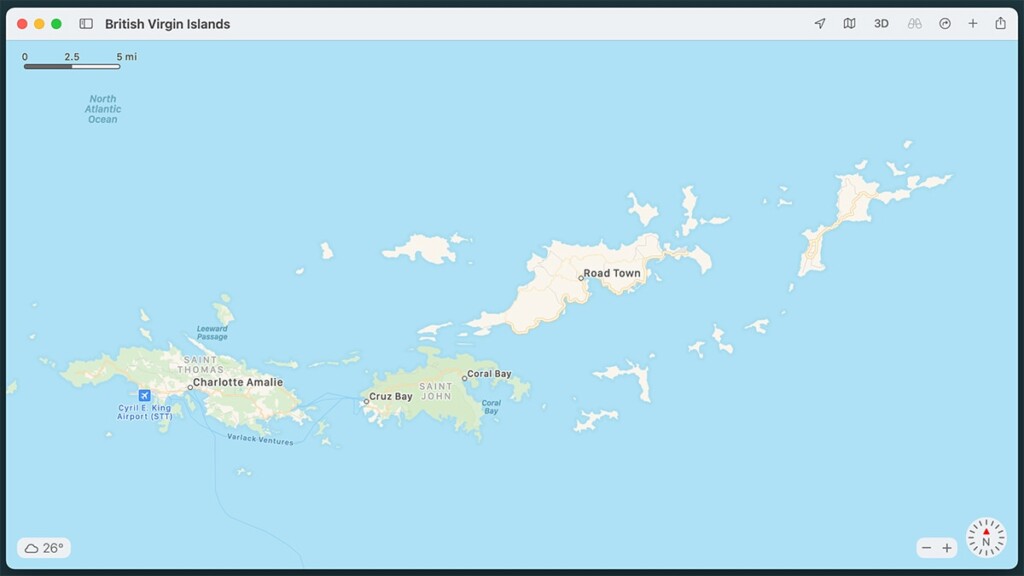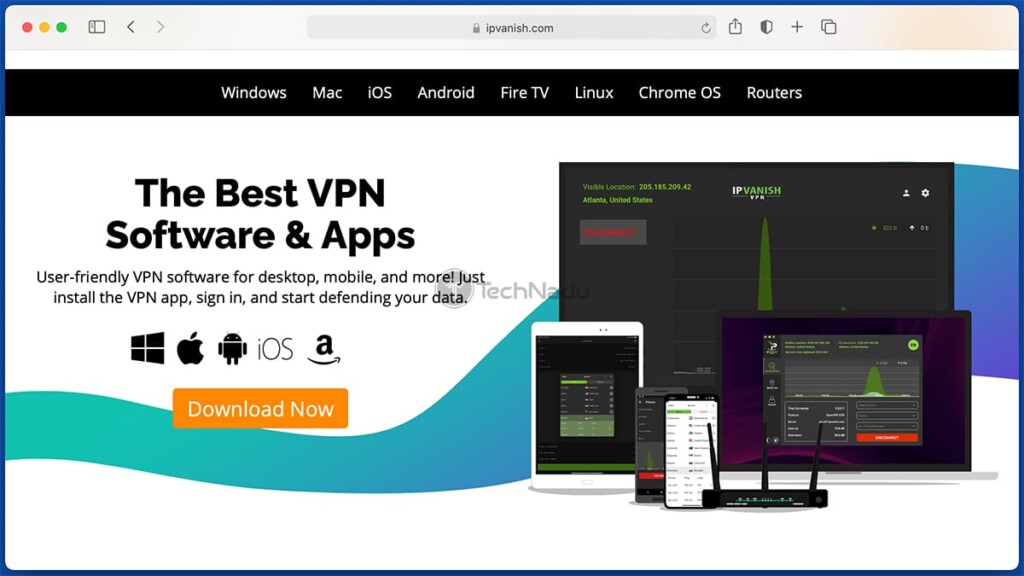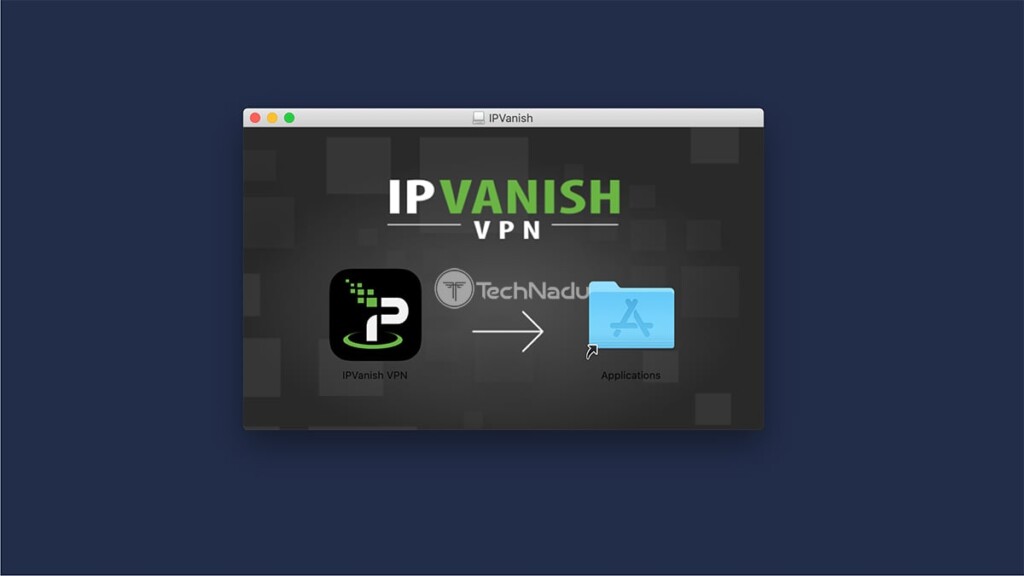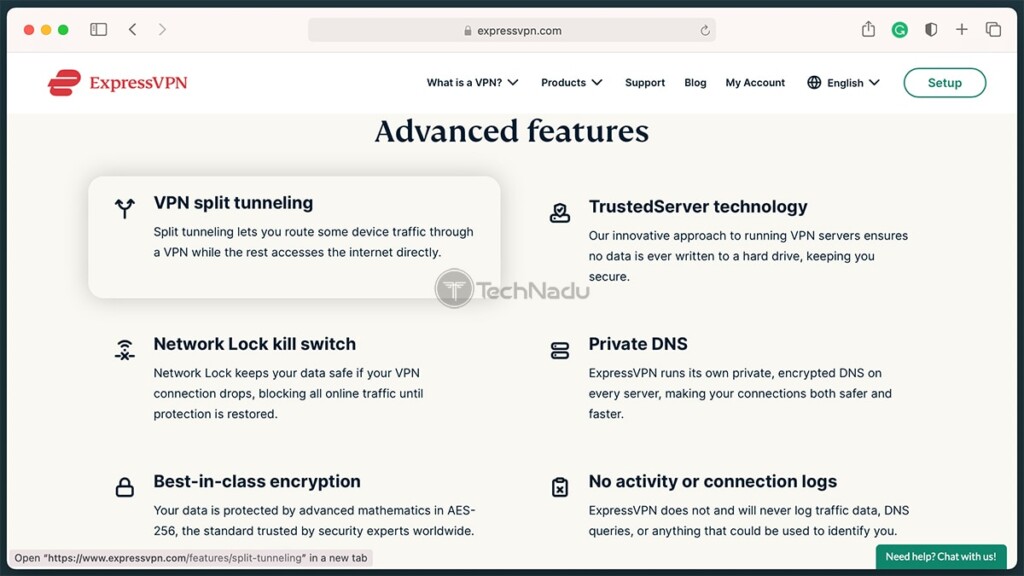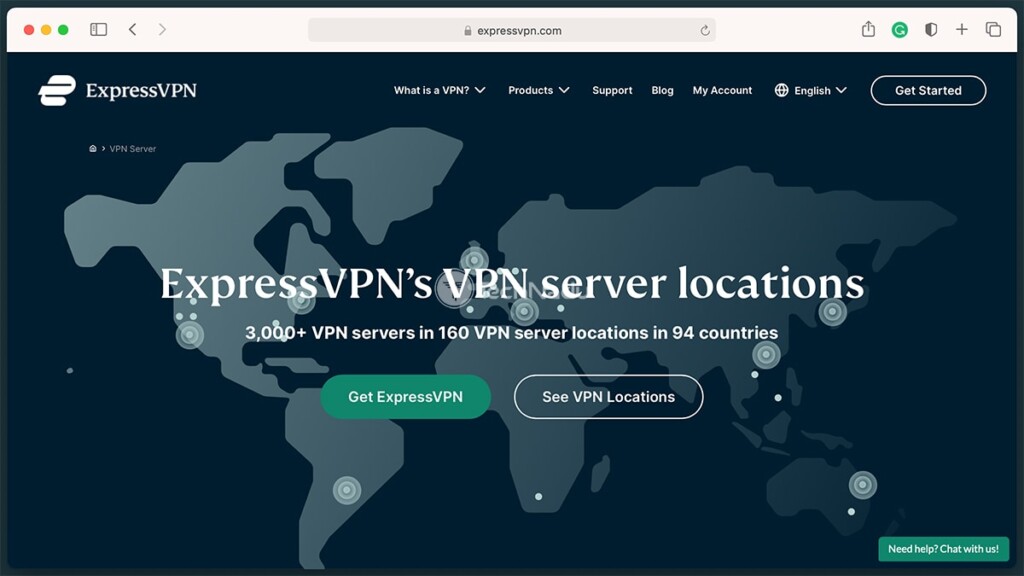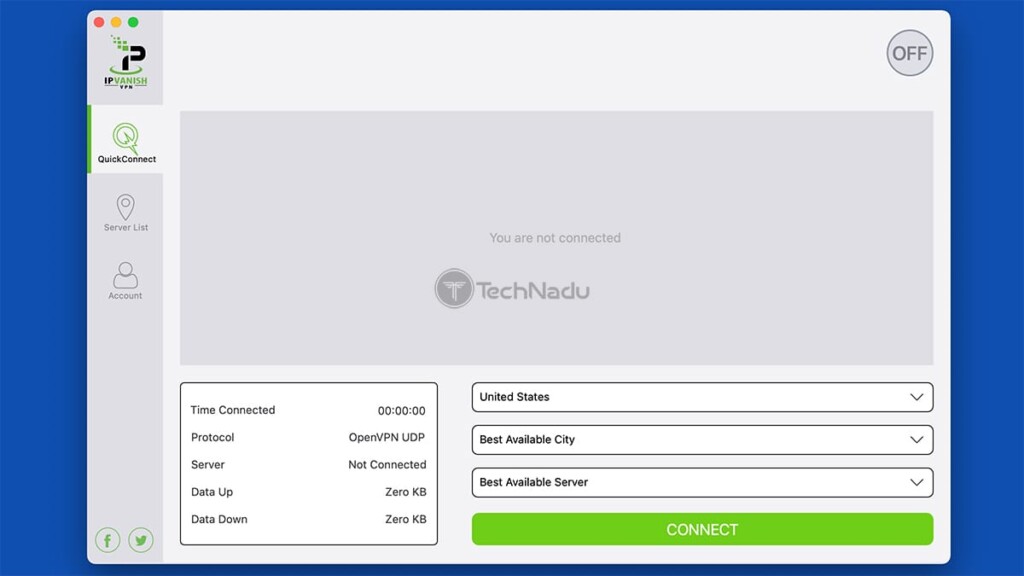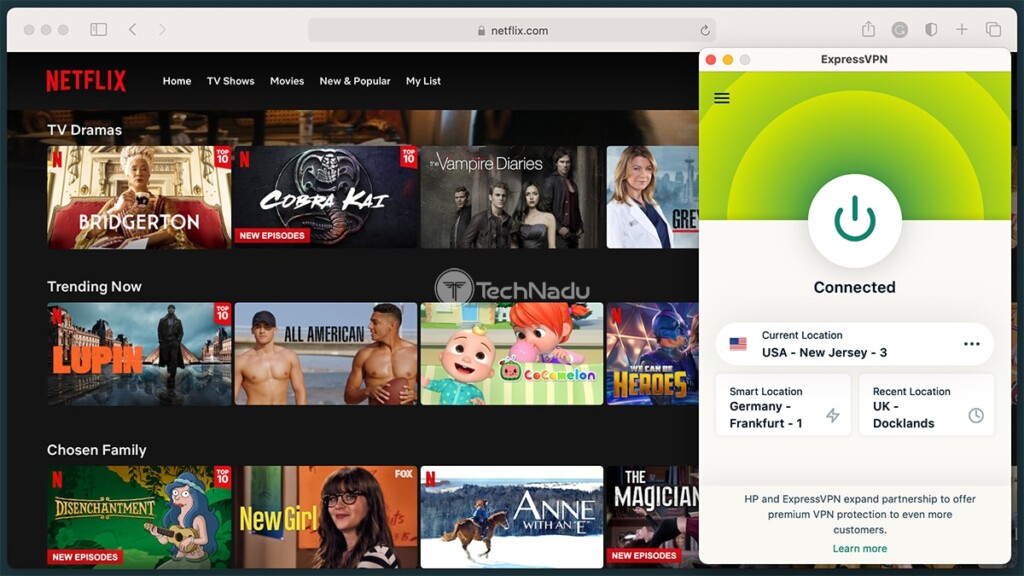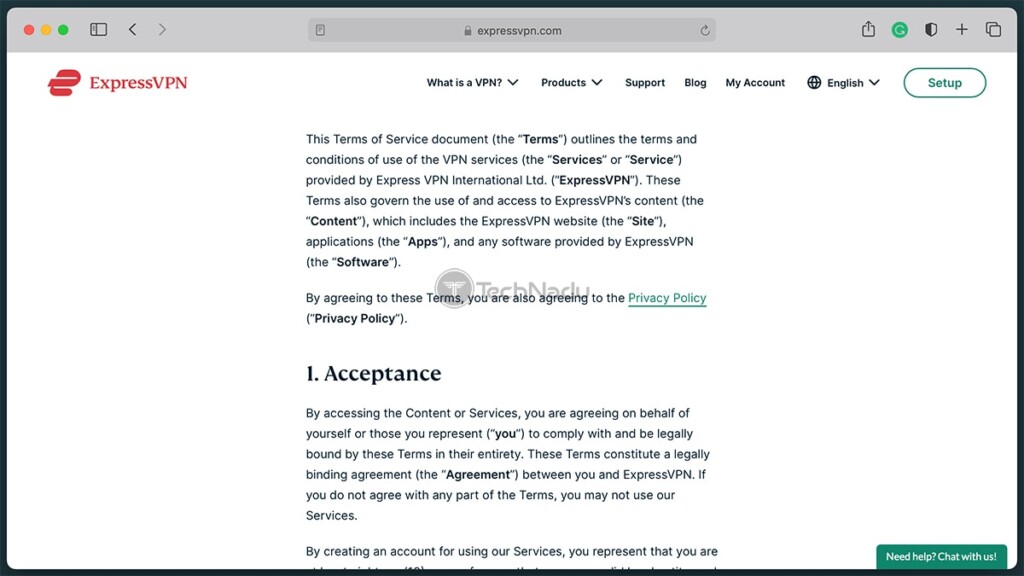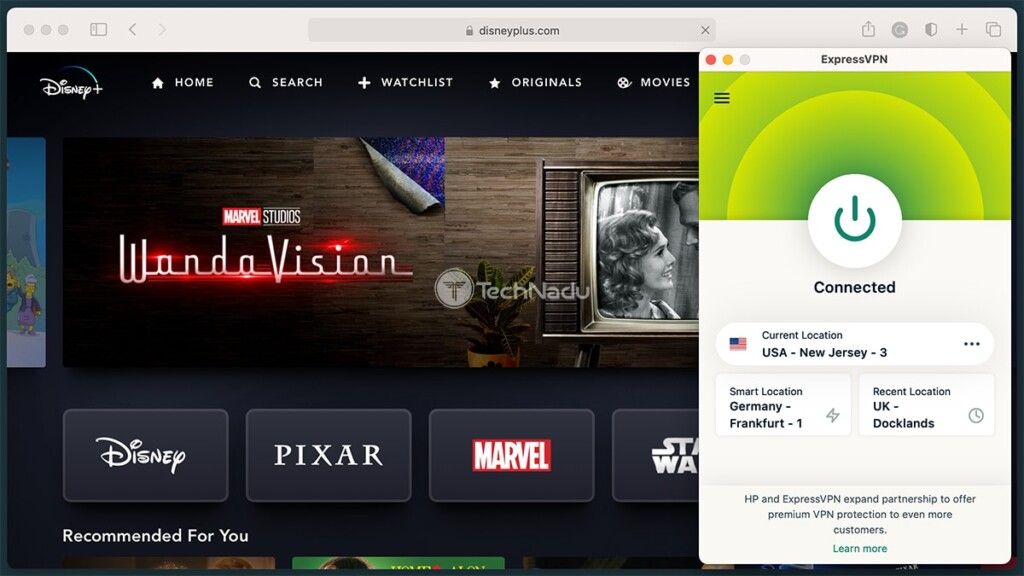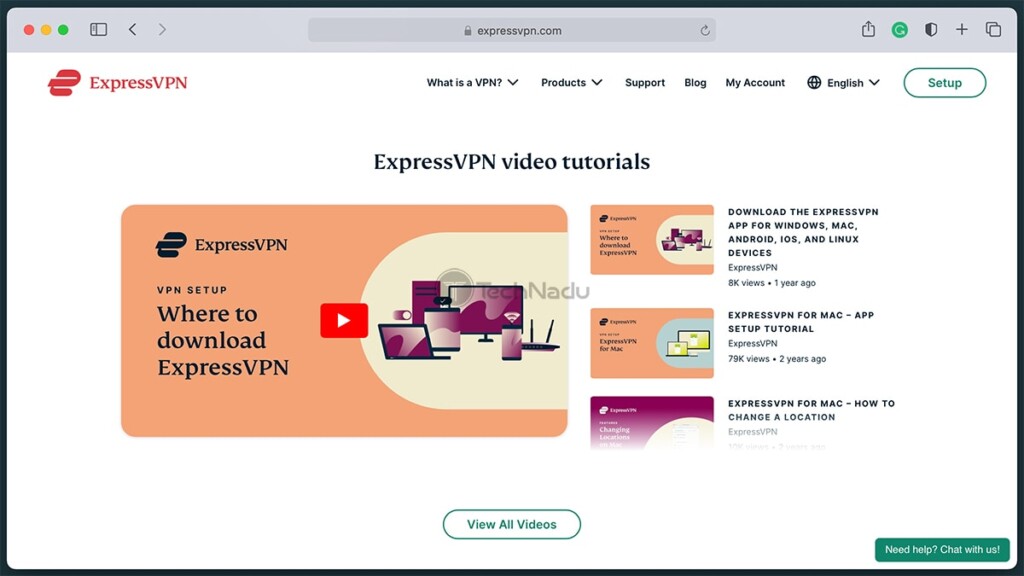ExpressVPN vs. IPVanish 2021 – Which One’s Better?
13 min readTable of Contents
ExpressVPN and IPVanish are among the most popular VPNs in 2021. Both of them come recommended by their users, and both of them have made their way to our list of best VPN services. However, even though they might look alike, these VPNs are actually very different. With that said, we wish you a warm welcome to our ExpressVPN vs. IPVanish comparison.
As you can read in our ExpressVPN review, this is a close-to-perfect VPN service. It covers the basics in the best way possible while also bringing a series of advanced features. No matter what’s your goal when using a VPN, ExpressVPN will undoubtedly meet your needs.
On the other hand, our IPVanish review shows that this VPN caters to a wide range of users. It does have some quirks, but it offers plenty of value for its (affordable) price. It even offers a group of advanced features, catering to more advanced users.
Before we jump to our head-to-head ExpressVPN vs. IPVanish comparison, we’ll give you a quick overview of their most important features. So, take a look at the table below.
Next, let’s take a look at both of these VPN services’ scores based on our reviews. This will give you a clear idea of their biggest strengths and weaknesses.
By looking at the table found above, you can see our ExpressVPN vs. IPVanish comparison’s overall score. However, this doesn’t mean ExpressVPN is a better option for every type of user. So, make sure to keep on reading and learn more.
ExpressVPN vs. IPVanish (2021) – Head-to-Head Comparison!
To help you learn which of these two popular VPNs fits your needs in a better way, we’ll take a look at a series of different aspects. We’ll start with the basics of covering their background info, supported devices, and installation procedures. Then, we’ll jump to more advanced topics like functionality and performance.
Background, Jurisdiction & Reputation
It’s crucial to know from which country your chosen VPN originates. That fact dictates the way it collects personal data (if it collects any), as well as the way it treats its subscribers. With that said, here’s what you should know about ExpressVPN and IPVanish.
- ExpressVPN: This VPN has done a wonderful job of creating a safe environment for its users. It comes from the British Virgin Islands, a country that comes free of mandatory data retention laws. On top of that, ExpressVPN wasn’t afraid to go through an independent audit to prove its ‘no-logs’ claims. That’s one of the reasons you’ll find this VPN on our list of the best ‘no-logs’ VPN services. And if that doesn’t convince you, know that ExpressVPN utilizes ‘TrustedServer’ technology, which means that no hard drives are used in its data centers. All in all, an incredibly safe and private option.
- IPVanish: This is a US-based VPN service (you’ll want to read about the 5/9/14 Eyes Alliance) that has a very complicated corporate structure in its background. It’s owned by NetProtect, which is then owned by J2 Global. This company has a whole slate of VPN services, which doesn’t sound reassuring. On top of that, IPVanish was caught logging private information in the past, and it’s still trying to recover from that blow to its reputation.
Supported Platforms & Devices
You most probably use multiple devices to connect to the Web. Therefore, you’ll need a VPN that has native apps for your devices, so you can use it at your home, as well as on-the-go.
- ExpressVPN: Since ExpressVPN is OpenVPN-based, you have a whole range of compatible devices in front of you. That’s because this is an open-source VPN protocol with clients for all desktop and mobile platforms. Besides, this also means that you can install ExpressVPN on a router. Aside from all of this, ExpressVPN offers highly polished native apps for Windows, macOS, iOS, Android, and Linux. All in all, this VPN covers pretty much any device, as well as on up to 5 devices at the same time.
- IPVanish: One of the strongest selling points of IPVanished used to be its platform compatibility. Here, we also have a VPN that supports OpenVPN across the board. However, things have changed during the last couple of years. Even though IPVanish still offers apps for a nice range of platforms, it’s no match for ExpressVPN (which even offers Web browser extensions, giving you plenty of freedom of when and how to use this VPN).
Installation & Initial Configuration
No one wants to spend hours setting up a VPN. Therefore, you’ll want a VPN that comes with a streamlined installation method, giving you just enough flexibility. Let’s see how well do these VPNs meet our setup-related requirements.
- ExpressVPN: The installation process of ExpressVPN is as easy as it gets. Once you have an active subscription, you can download the VPN’s apps according to your platform (from ExpressVPN’s website, of course). The installation process is straightforward and doesn’t come with anything unusual. The most unusual thing might be a dialog box asking you to install a driver (on Windows) – needed to connect to the Web. Finally, it’s also worth knowing that you can install ExpressVPN on a router by following extensive documentation.
- IPVanish: Everything we said about its competitor applies to IPVanish as well. Once you sign up for an account, you can proceed to download native apps. We’re sure you’ll manage to set up IPVanish on desktop and mobile platforms with ease, even if you’re a first-timer. And when it comes to routers, IPVanish offers handy guides and tutorials, making this process as safe and easy as possible.
Prominent Features
As with any popular VPN, you can expect the standard set of features out of ExpressVPN and IPVanish. This includes these VPNs’ ability to hide your IP, protect your data by encrypting it, and making sure your data doesn’t leak online. However, advanced features show the true power of a VPN.
- ExpressVPN: This VPN is one of the most secure VPNs with a rigorous no-logs policy. That means none of your data will ever be stored on this VPN’s servers. As you can imagine, ExpressVPN also brings advanced features to make sure no one else gets to your data. This includes a helpful kill-switch (available on Windows, macOS, Linux, Android, and routers) to keep you protected even if a secure connection is dropped. Then, there’s split-tunneling (available on Windows, macOS, Android, and routers) as well as a zero-knowledge DNS system.
- IPVanish: Interestingly enough, IPVanish also brings a kill-switch and split tunneling, as well as many advanced technologies. However, IPVanish’s kill-switch is available on Windows, macOS, and Android, while split tunneling is available on Android only. Therefore, if you don’t take a closer look when comparing ExpressVPN vs. IPVanish, you’ll think they’re the same. However, IPVanish is a couple of steps behind its competitor.
Server Count & Infrastructure
Depending on your planned activities, you might be interested in knowing how many servers each of these VPNs offers. So, that’s why we include this category into our ExpressVPN vs. IPVanish comparison.
- ExpressVPN: This VPN provider proudly claims that it has more than 3,000 servers. As you can imagine, these are spread over the entire world (in more than 90 countries, to be more precise). No matter where you want to connect to or what you plan on doing on the Web, we’re sure you’ll be covered well (you can access servers across more than 160 locations in total).
- IPVanish: Even though IPVanish has been on the market for a while now, it has a bit over 1,600 servers. As you can see, this is nowhere near what ExpressVPN offers. Besides, this VPN has servers in over 50 countries. Therefore, we can conclude that IPVanish’s server network is about 50% smaller than its competitor’s.
UI/UX Design & Ease of Use
How experienced are you when it comes to VPN applications? In case this is the first time you encounter this type of software, you’ll want an application that’s intuitive and easy to understand – starting the moment you open it.
- ExpressVPN: The best thing about this VPN is how simple to use it is. However, that doesn’t mean that ExpressVPN is an oversimplified tool. Depending on how deep you want to go in terms of settings and fine-tuning, the app responds to your needs. You are free to let the application select the best server for you, or you can test servers and decide on your own. If you decide to dive into settings, you’ll see that everything is nicely explained. With that said, we believe that ExpressVPN is a true example of software that’s optimized both for first-timers and experienced users.
- IPVanish: Many of us would agree that IPVanish doesn’t have the best-looking interface. That goes especially for those who don’t like having plenty of information on their screens. That’s why you might be overwhelmed by IPVanish before you get to know this application truly. Still, with a bit of effort, you’ll see that IPVanish is highly adaptable. With that said, even though it takes time to truly learn your way around this application, it’s worth it.
Media Streaming & Torrenting Support
One of the big reasons for the popularity of VPN services is their ability to unblock media streaming websites and apps. With that said, let’s see how well do ExpressVPN and IPVanish perform this task.
- ExpressVPN: You’ll often find ExpressVPN listed among the best VPNs for streaming, and rightfully so. It can unblock pretty much any website out there, and that includes media streaming services. We’ve had an easy time unblocking Netflix, Hulu, Disney Plus, Discovery Plus, BBC iPlayer, Prime Video, and plenty more. You won’t find any specialized servers here, as ExpressVPN’s entire server lineup is capable of media streaming, which makes things easy and straightforward.
- IPVanish: This VPN was never actually known as a streaming-friendly VPN. Instead, it always marketed itself as a privacy-first solution. Therefore, knowing that IPVanish only unblocks Netflix and Disney Plus doesn’t come as a surprise. You won’t have much luck trying to unblock other streaming platforms.
Security & Privacy
You can be mesmerized by a VPN’s looks and features. However, all of that doesn’t matter if that VPN doesn’t protect you online. So, let’s take a look at how ExpressVPN and IPVanish are doing their primary job.
- ExpressVPN: The most important thing to know is that ExpressVPN has a stellar reputation. A while back, ExpressVPN’s servers located in Turkey were seized by the government. However, even though this VPN provider agreed to cooperate with Turkish authorities, not a single file was given. That’s because no useful information can be found on any of the VPN’s servers. ExpressVPN is a no-log VPN, and it uses 256-bit encryption to scramble your data. On top of that, it uses a range of capable VPN protocols (OpenVPN, Lightway, L2TP/IPsec, IKEv2, and PPTP) that encapsulate your data within the VPN’s strong tunnel.
- IPVanish: A few years ago, there were reports that IPVanish was cooperating with the FBI on providing usernames and IP addresses. According to a statement by the company’s CEO, this was the case back in 2015. However, IPVanish was acquired by StackPatch in 2017, and then by J2 Global just recently. Today, IPVanish claims to be a no-logs VPN, but we’re yet to see an independent audit to prove those claims.
Speed & Performance
Having thousands of servers in front of you is an amazing thing. However, what’s important is how well those servers perform. Let’s take a look.
- ExpressVPN: Considering how much power this VPN brings, we felt impressed by its performance. It made our Web connection slower by around 45%, which might seem like a lot. However, for comparative purposes, we’ve used OpenVPN and AES-256 – so, an incredibly strong combination. In other words, you can get even faster speeds by fine-tuning ExpressVPN based on your needs. And if you have a fast-enough Web connection, you can still use this high-end protocol and encryption – while streaming 4K without any issues.
- IPVanish: As you can see above, this VPN made our Internet connection slower by around 74%. Even though nearby servers worked nicely, we’ve experienced a massive speed loss while testing remote servers. Therefore, this tells us that IPVanish requires some fine-tuning if you want to maintain a satisfactory level of your Web connection’s performance. On top of that, IPVanish recently announced the availability of new network cards – but we’re yet to see any positive effect of that upgrade. For now, IPVanish is miles behind ExpressVPN in terms of its performance.
Customer Support
VPNs are incredibly complex systems that often include vast server connections. At some point, something will go wrong. That’s when you’ll be happy to have a reliable support team watching your back.
- ExpressVPN: When it comes to providing support, ExpressVPN covers all major areas. There are extensive guides on the official website where you check for an answer on your own. However, there’s live chat as well (available 24/7), and you can get help via email (expect to receive an answer within a few hours). No matter what kind of issues you’re facing, we are 100% sure that you’ll get help in the shortest amount of time possible.
- IPVanish: This VPN has done plenty regarding its customer support in the last year. Today, IPVanish also offers live chat via its websites (available 24/7), and you can send an email to open an official customer support ticket. Aside from that, IPVanish now has a dedicated phone number reserved for its subscribers. And finally, plenty of setup guides and FAQ await on IPVanish’s website.
Pricing
The final category of our ExpressVPN vs. IPVanish comparison is the pricing of these two providers. Let’s take a look at what they offer.
- ExpressVPN: This VPN currently offers three subscription plans, starting at $6.67 per month – if you opt for ExpressVPN’s annual plan (which gives you 3 free months as well). If you decide to pay monthly, you’ll be billed $12.95 each month. Overall, ExpressVPN was never known as a highly affordable VPN service, especially when comparing monthly VPN plans. However, it’s also true that it offers a tremendous value for its price, as you get a complete solution to preserving your digital privacy.
- IPVanish: Despite not being able to mirror ExpressVPN’s set of features, IPVanish comes with a similar price. If we compare these two VPNs’ annual plans, they’re priced around $6.67 per month. The only advantage that IPVanish has in this aspect is its monthly price, at $9.99. Considering the value it brings, we think IPVanish is a bit overpriced.
ExpressVPN vs. IPVanish – Which of These VPNs Should You Pick?
We don’t have to think hard to answer which of these VPNs you should pick. ExpressVPN is currently the best VPN on the market, with a stellar reputation for protecting your data. You can count on it to browse the Web securely, stream video files, play online games, and more. We are certain that no matter what your needs are, ExpressVPN will position itself as the best solution.
If we’ve helped you reach the final decision, go ahead and sign up for ExpressVPN! You’ll soon realize that is the best possible decision for keeping your data private and out of reach of third-parties.
With that said, you’ve reached the end of our ExpressVPN vs. IPVanish comparison. If there’s anything else you’d like to know, feel free to post your comment below. Thanks for reading!

